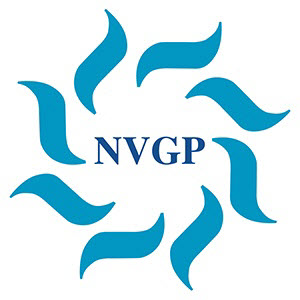Group versus Individual Cognitive Treatment for Obsessive-Compulsive Disorder
Amparo Belloch , Elena Cabedo, Carmen Carrió, Héctor Fernández-Alvarez, Fernando García, Christina Larss (2011). Group versus individual cognitive treatment for Obsessive-Compulsive Disorder: Changes in non-OCD symptoms and cognitions at post-treatment and one-year follow-up. Psychiatry Research 187, 1–2, (15), 174–179
Verslaggever Willem de Haas
Samenvatting
Current cognitive approaches postulate that obsessions and compulsions are caused and/or maintained by misinterpretations about their meaning. This assumption has led to the development of cognitive therapeutic (CT) procedures designed to challenge the dysfunctional appraisals and beliefs patients have about their obsessions. Nonetheless, few studies have compared the efficacy of individual and group CT in changing the dysfunctional cognitions that hypothetically underlie Obsessive-Compulsive Disorder (OCD). In this study, 44 OCD patients were assigned to individual (n = 18) or group (n = 24) CT. Sixteen completed the individual CT, and 22 completed the group CT. The effects of the two CT conditions on depression and worry tendencies were comparable. Individual treatment was more effective than group treatment in decreasing scores on dysfunctional beliefs (responsibility, overestimation of threat, and intolerance to uncertainty) and the use of suppression as a thought control strategy. The post-treatment changes were maintained one year later. The correlations between symptom improvement (OCD severity change) and belief changes were moderate: in the individual treatment the greatest associations were with beliefs about thoughts (importance and control), whereas in the group treatment the greatest associations were with beliefs related to anxiety in general (threat overestimation and intolerance to uncertainty).
Wat betekent dit voor de groepspsychotherapie en nvgp
Weer een gedegen RCT over de vergelijking tussen individuele- en groeps-Cognitieve Therapie bij de behandeling van de Obsessieve Compulsieve Stoornis (OCD), nu uit 2011. Een vergelijkbaar onderzoek stamt uit 2007 (Rebecca A. Anderson, Clare S. Rees (2007). Group versus individual cognitive-behavioural treatment for obsessive-compulsive disorder: A controlled trial. Behaviour Research and Therapy, 45 (1), 123–137). Zie het verslag hiernaast. Het onderzoek uit 2007 wordt door deze onderzoekers nog geciteerd. Daarin werd geen verschil gezien tussen de groeps- en individuele CT bij de behandeling van OCD. Dit onderzoek uit 2011 toont aan dat de individuele- en groeps CT gelijke resultaten geven als het gaat om de met de OCD samenhangende neiging tot piekeren en een sombere stemming. Individuele CT was effectiever als het gaat om verandering van de disfunctionele gedachten samenhangend met de OCD. De groepsaanpak komt er in dit onderzoek dus iets minder goed uit vergeleken met de individuele aanpak. Dat was anders in het onderzoek uit 2007. In dat onderzoek werden geen verschillen gevonden tussen de individuele- of groepsaanpak van OCD. Dat roept enkele vragen op, die overigens door het artikel niet worden beantwoord. Is het onderzoek uit 2011 exacter? Is er specifiek naar disfunctionele gedachten gevraagd? Je zou willen weten of de twee onderzoeken een verschillende groepsaanpak hanteerden. Dat is echter uit de artikelen niet op te maken. De aanpakken lijken op elkaar, maar details worden niet vermeld.
| Relevantie voor richtlijnen | O O O O O |
| Relevantie voor onderzoek | O O O O O |
| Relevantie voor groepsbehandeling | O O O O O |
| Relevantie voor teamcoaching | O O O O O |
| Relevantie voor groepsdynamicaopleiding | O O O O O |
| Relevantie voor groepstherapieopleiding | O O O O O |
| Relevantie voor KP opleiding/Psychiatrie opleiding | O O O O O |
